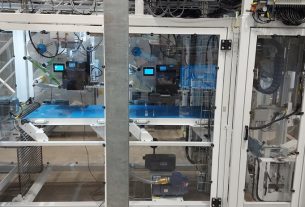By Matt Hale, International Sales & Marketing Director, HRS Heat Exchangers
Along with others in the anaerobic digestion (AD) and biogas sector, HRS Heat Exchangers welcomes the recent announcement by the Government that weekly collections of food waste will also be introduced for most households across England by 20261. Defra’s ‘Simper Recycling’ plans also state that the ‘Government’s preference is for food waste to be collected for treatment by anaerobic digestion (AD), which presents the best environmental outcome.’
We recently commented on how a lack of consistency in policies, including around nationwide food waste collections, were preventing the UK from maximising the potential of AD to both generate renewable energy, mitigate emissions from organic wastes, and boost soil health. It is therefore extremely welcome to see the government recognise that, ‘Municipal food waste collections will reduce the amount of food waste going to landfill, where it releases harmful greenhouse gases, helping to achieve our Net Zero strategy target to eliminate biodegradable waste sent to landfill from 2028. Instead, where food waste is collected separately, it can be reprocessed to create organic fertiliser and biogas, which can be used to generate electricity, bolstering our energy security.’2
As Charlotte Morton of the Anaerobic Digestion and Bioresources Association (ADBA) points out;
“Separate food waste collections are the cornerstone for an effective implementation of Defra’s Food and Drink Waste Hierarchy and now Local Authorities and AD operators can plan with confidence to put contracts and infrastructure in place to ensure inedible food waste goes to AD treatment as the first recycling option. The food waste collected will provide an invaluable new source of feedstock for AD plants to produce renewable gas for heat, electricity and transport fuel, and biofertilisers for soil health and improved crop yields.”3
However, as a number of industry observers have already noted, the increase in segregated food waste requiring treatment will exceed current treatment capacity unless new AD plants are built quickly. The government also seems to have recognised this, and in another welcome announcement, has confirmed that the Green Gas Support Scheme (GGSS) will be extended until 31 March 2028 – ahead of the full response to the Mid-Scheme Review consultation.4
HRS hopes that these newly announced measures will unlock the considerable biogas potential in the country, allowing a number of proposed and planned AD plants to now proceed to completion. As we have previously commented, it is imperative that AD plants maximise efficiency at every stage of the process, for both economic and environmental reasons, and doing so will require a multi-disciplinary approach including the use of heat regeneration through heat exchangers, as well as the use of bespoke systems such as the HRS BDS (Biogas Dehumidification System), DCS (Digestate Concentration System) and DPS (Digestate Pasteurisation System).







